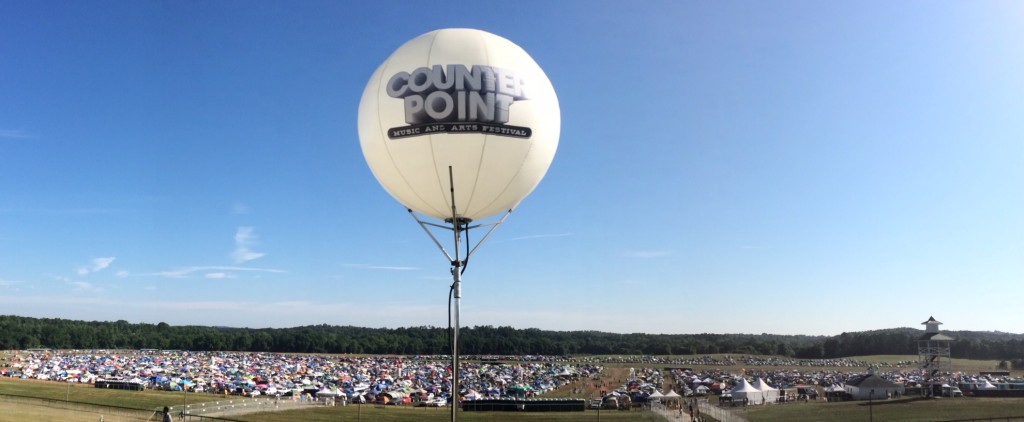Home » Event and Festival Camping Guide
Event and Festival Camping Guide
Camping at a festival, especially multi-day festivals, can be a significant undertaking but can also establish your festival as a destination event, where people will travel great distances to enjoy a full weekend and increase the amount of revenue streams for your festival.
- Determining whether or not to offer camping at your festival
- Factors to consider:
- Space for campers, and is good for tents / vehicles
- Any existing infrastructure (lighting, power, buildings)
- Is the demographic coming the kind that would camp?
- How many days is your event?
- What time of year will it be and what sort of normal weather patterns exist?
- What sort of insurance will we need to have proper coverage for having people live onsite?
- Do we want to close off the campgrounds during certain hours / require quiet hours?
- Factors to consider:
- Planning out the camping area
 The Campgrounds at CounterPoint 2015
The Campgrounds at CounterPoint 2015- Coordinating with local Fire Marshalls / City or County Staff to ensure there are proper ingress / egress routes as well as emergency routes
- Deciding on what to offer:
- Tent Camping (with vehicles parked elsewhere)
- Tent Camping with a vehicle next to it
- RV Camping – with specific size limitations
- VIP Camping – deciding what to offer (usually if there is also glamping, VIP camping will offer closer access to the main festival grounds as well as showers / comfort stations)
- Glamping – deciding to do this in-house or hire a third party, and what all should be offered (tent size and style, showers / bathrooms, lounge, proximity to main festival grounds, etc)
- Music Festival Junkies has a great section devoted to the latest and greatest in festival camping
- Hiring a run of show camping manager and team
- Decide on whether or not to offer a 24/7 general store / information area
- Campsite Elements / Amenities to consider:
- Yoga
- Sports and Games (i.e., volleyball courts, frisbees, soccer, other lawn games)
- Campground Stage with separate live music lineup
- 5K or other types of group running
- Showers / Comfort stations for an upcharge
- Coordinating with Creative, Ticketing, Marketing, and Site Departments
- Site Build / Run of Show / Strike
- Having all site elements put in place – fencing, restrooms, power, lighting, signage
- Having your Camping Manager and crew oversee the load-in of campers
- Having the parking lined out properly and with the proper amount of staff to guide so it’s easy to load in vehicles
- Manning a 24/7 information area / general store (all but the smallest of campgrounds should be offering this) that includes
- Medical / Security area
- General information / Help area
- Cell phone charging station
- Items for sale – general sundries, ice, bottled water, beer (if allowed)
- Possible restaurant if the size of the campgrounds warrant
- Trash / Recycling / Composting area (with others spread out throughout the campsites)
- Overseeing load-out, which usually occurs in two major phases
- After the last band is finished, many will want to leave that night
- The rest usually stay until the next morning
- Enforcing the deadline to leave may take some manpower, depending on the demographics of the crowd and other factors such as weather and campground size
- Having the Green Crew come in and remove all trash


